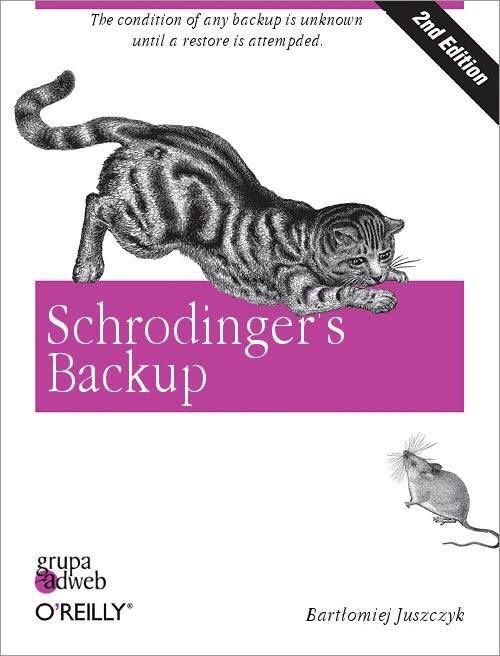
In the intricate tapestry of Technotopia, a domain where data streams like the lifeblood through its digital veins, there arises a paradox as old as time yet as contemporary as the latest tech trend: Schrödinger's Backup. This phenomenon, grounded in the uncertain fate of data backups, whispers a truth often ignored: "The condition of any backup is unknown until a restore is attempted."
Central to our narrative is Alex, a DevOps engineer whose expertise in weaving the safety nets for Technotopia's vast repositories of knowledge is unparalleled. Alex, like many before them, has always operated under the assumption that their rigorous backup protocols were a bulwark against data disaster. That is until the day Schrödinger's box was opened, and the illusion of certainty was shattered.
The revelation came on an ordinary morning, under the fluorescent glow of server room lights. A critical system failure, like a thief in the night, had swept through Technotopia's digital landscape, leaving chaos in its wake. Confidence turned to trepidation as Alex initiated the restore process, the weight of Schrödinger's Backup heavy upon their shoulders. It was in this moment of truth that the paradox revealed itself: despite the meticulous backups, their effectiveness was as uncertain as a quantum superposition, their true state unknown until observed through the act of restoration.
As the system churned, attempting to resurrect itself from the digital ashes, Alex pondered the enigmatic nature of backups. The event unfolded as a stark reminder that backups, in their essence, are not just routine procedures but acts of faith in the face of technological entropy. The success of the restoration process was a coin toss, a dance with chance that underscored the precarious balance upon which the sanctity of data stands.
The ordeal sparked a transformation in Alex and, by extension, Technotopia's approach to data stewardship. Schrödinger's Backup became not just a cautionary tale but a catalyst for change. Alex championed the implementation of regular restore drills, a practice akin to emergency drills in the physical world, ensuring that the team was not just prepared for the eventuality of data loss but fully capable of navigating the restoration process with precision and confidence.
This shift in paradigm, from passive to active readiness, permeated the culture of Technotopia. Backups were no longer seen as mere insurance policies, tucked away and forgotten, but as living entities requiring regular validation and care. The community rallied around this cause, sharing stories, strategies, and scripts, strengthening the collective resolve to defy Schrödinger's paradox.
"Schrödinger's Backup: The condition of any backup is unknown until a restore is attempted" thus transcends its origins as a cautionary maxim, evolving into a doctrine of proactive vigilance and resilience. In the annals of Technotopia, it stands as a testament to the ingenuity and adaptability of those who dwell in the realm of technology, a reminder that in the digital age, certainty is a luxury, but preparedness is a choice.
And so, in the heart of Technotopia, Schrödinger's Backup serves as both a warning and a wisdom, a paradox that illuminates the path to data integrity and security. It is a symbol of the eternal vigilance required to safeguard the digital treasures we hold dear, ensuring that when the box is opened, what lies within is not a wave function of possibility, but a certainty of restoration and recovery.